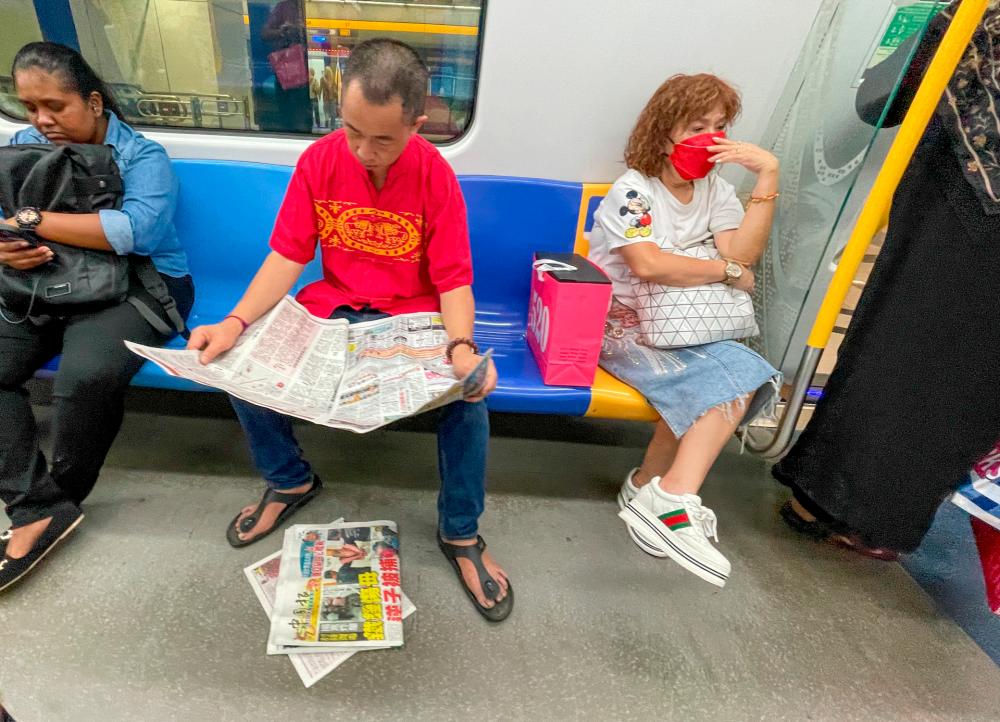PETALING JAYA: While the Transport Ministry has taken action to get public transport providers to improve their services, it is now some individuals among the public who need to change their attitude and become more civic-minded.
Seat hogging remains an issue on the MRT and LRT, inconveniencing pregnant women, senior citizens and persons with disabilities who often struggle jostling with the crowd during their daily commute.
Several social media users have highlighted situations in which individuals place bags or other items on seats next to them, forcing other passengers to stand.
Private university student Haziq Zulkifli, 23, said: “Most of the time, commuters use their belongings to ‘reserve’ one or more seats next to them. Some men even spread their legs wide to monopolise space, leaving others standing.
“Such behaviour is unacceptable and inconsiderate. I have seen pregnant women and senior citizens standing without a seat because of such people who just refuse to make room. It is disheartening to witness such blatant disregard for basic courtesies,” he said.
Malaysian Coalition on Ageing chairman Cheah Tuck Wing said despite efforts to address the issue, enforcement remains a challenge due to a lack of empathy among commuters.
“Public transport operators have allocated priority seats that are identified by clearly visible signs.
“They are intended to accommodate passengers with special needs, such as the elderly, expectant mothers, persons with disabilities and those travelling with young children. But oftentimes, they are unable to access such seats due to inconsiderate passengers.
“Despite the clear signage and policies in place, there seems to be reluctance among some passengers to yield their seats. This lack of empathy may stem from a sense of entitlement, or poor awareness about the importance of priority seating for vulnerable individuals.”
Cheah said there is a need to launch
public service campaigns that emphasise having empathy for vulnerable people, adding that only then can society move towards a more just, compassionate, and socially cohesive future.
He said addressing such issues goes beyond legislation as it requires a profound shift in societal attitudes and values.
“It often involves a combination of educational campaigns, increased enforcement measures and fostering a culture of compassion and understanding among passengers.”
Citing cases of men sitting in seats reserved for women and individuals blocking the path with non-foldable bicycles on the train, Cheah said such behaviour disregards the established rules and etiquette of public transport, adding that it negatively impacts the commuting environment for all passengers.
While he commended the authorities for taking steps to regulate transporting bicycles on trains, he said cyclists should ensure their actions do not inconvenience others.
He also said apart from monitoring by the authorities, commuters should play their role and be more civic-conscious while travelling on public transport.
“Please raise your concerns through the appropriate channels before things escalate online. Train staff should also be tasked with monitoring priority seating areas.”









